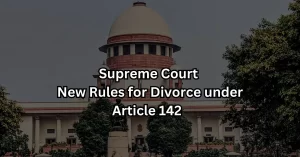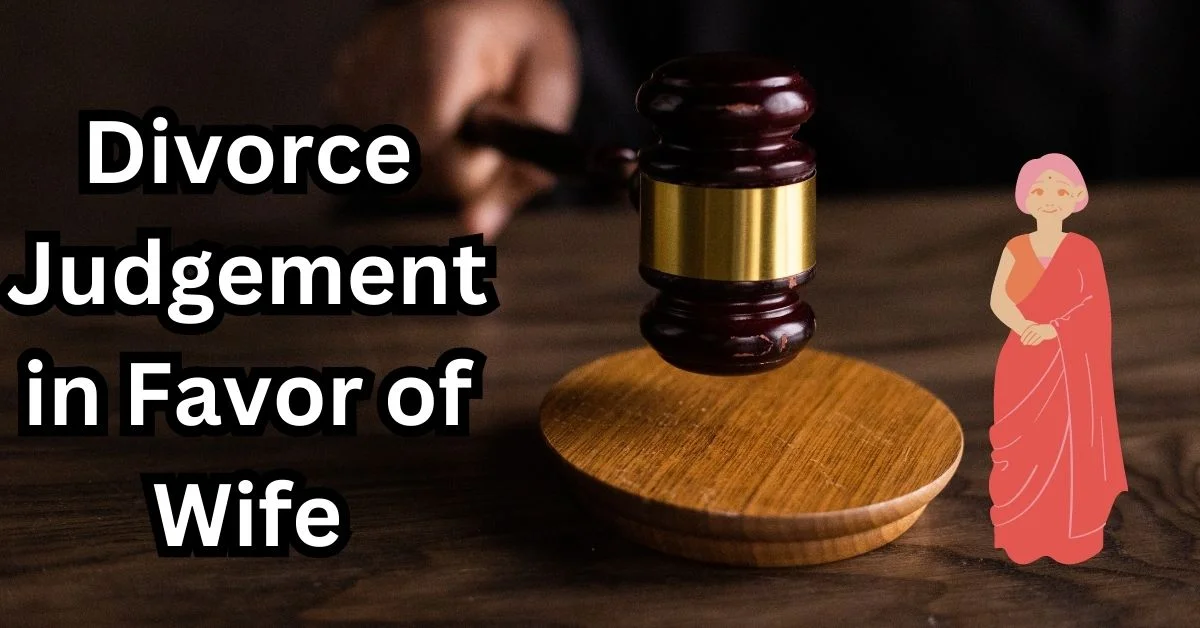Supreme Court’s New Law for Divorce in India – A Comprehensive Guide
In a recent landmark judgment, the Hon’ble Supreme Court of India has redefined the rules for divorce, providing clarity on the scope and exercise of its powers under Article 142(1) of the Constitution of India.This decision has far-reaching implications for divorce cases in the country. In this article, we delve into the key takeaways from the judgment and explain the new rules for divorce in India.
Understanding Article 142(1) – The Apex Court’s Jurisdiction
Article 142(1): A Closer Look
The Supreme Court has clarified that it can depart from both procedural and substantive laws in cases guided by fundamental general and specific public policy. This power is exercised when the court acts as a problem solver, balancing equities between conflicting claims in a ’cause or matter.’
Divorce by Mutual Consent – Bypassing Section 13-B
The Power of Settlements
The Supreme Court’s judgment empowers it to grant a divorce by mutual consent, bypassing the procedural requirements of Section 13-B of the Hindu Marriage Act. This means that couples who have settled their differences can now obtain a divorce more swiftly. However, the court emphasizes the need for caution and care when exercising this power.
Quashing Other Proceedings – A Broader Spectrum
Expanding the Horizons
In addition to divorce, the Supreme Court can use Article 142(1) to quash and dispose of proceedings under various laws, including the Domestic Violence Act, Section 125 of the Cr.P.C., and criminal cases, especially those under Section 498-A of the Indian Penal Code. This broadens the court’s jurisdiction, ensuring a more holistic approach to resolving complex marital disputes.
Irretrievable Breakdown of Marriage – A Ground for Divorce
Recognizing Irretrievable Breakdown
The Supreme Court now acknowledges the concept of a ‘complete and irretrievable breakdown of marriage’ as a valid ground for divorce. Even if one spouse opposes the divorce, the court can exercise its discretion under Article 142(1) to dissolve the marriage. This power is aimed at achieving ‘complete justice’ when the marriage has utterly failed, and cohabitation is no longer feasible.
Balancing Equity – The Court’s Role as an Equitable Authority
The Role of Equity
As a court of equity, the Supreme Court is not only responsible for interpreting the law but also for balancing the circumstances and backgrounds of parties involved in divorce proceedings. This ensures that the dissolution of a marriage is justified and fair to both parties.
Conclusion
The Supreme Court’s recent judgment has ushered in a new era for divorce in India. These rules provide clarity and flexibility in handling divorce cases, recognizing the importance of individual circumstances and the need for a just resolution. As couples navigate the complex terrain of divorce, these rules will serve as a guiding light, ensuring that justice is served in the most equitable manner.



